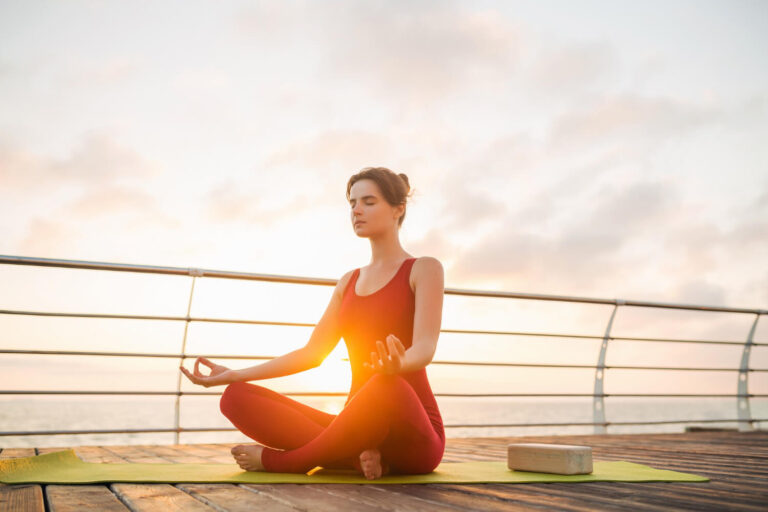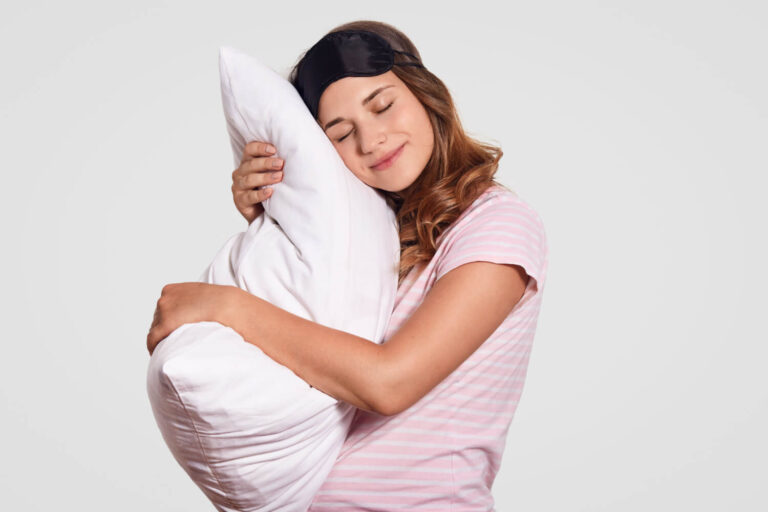
Have we stopped giving importance to sleep? In today’s world, our daily life involves working in the office where we spend 9 hours of our day, sometimes even 12.
Due to this, we are not finding enough time for ourselves. We then prefer to spend our bedtime watching a movie or drinking, what we refer to as so-called “chilling.”
Sleeping at night comes naturally to human beings. Most importantly, it is the perfect time for sleep because it has numerous benefits. After spending years contrary to our natural sleep cycle, we have lost our ability to sleep instantly.
The quality of sleep you get during nighttime determines how you will spend the next day. Good sleep is essential because it rejuvenates your body and mind to help you feel youthful and energetic and gives vitality to your being.
Poor sleep can affect your life negatively, especially your body and mind. It starts by diminishing your various biological functions and gradually lowering your cognitive abilities.
Failing to sleep due to our lifestyle can be hectic and annoying. So, how can you prevent this so that it doesn’t become a difficult situation, like insomnia in the future?
Let’s explore some of the best ways to fall asleep faster!
How to fall asleep fast? Here are ten easy and practical tips to help you sleep quickly:
1) Practice Yoga and Meditation

It becomes strenuous to sleep when we are stressed out. But the great news is that yoga and meditation have proved to be the tools to relax your body and mind, eventually promoting good sleep.
Practicing yoga involves specific breathing patterns and movements that help in mindfulness by releasing stress and tension. Regular yoga helps you feel more active and increases overall awareness.
Daily meditation enhances melatonin levels that help your brain reach a specific state of mind where sleep can be easily attained. As it makes you mindful, you gradually focus on the present rather than worrying and creating anxiety. Yoga and meditation will undoubtedly help you fall asleep faster. (1)
2) Stop taking naps during the day

People with insomnia are more prone to daytime naps due to poor nighttime sleep. While taking those short naps does help their well-being, there are mixed viewpoints about what it can do to nighttime sleep.
Regular naps that last two or more hours long can lead to poor sleep at night and even sleep deprivation (2). Also, some studies have shown the most inadequate nighttime sleep quality in those who take naps three or more naps per week.
To know if daytime naps affect your nighttime sleep, try eliminating naps altogether or switch to taking them for a short while (30 mins).
3) A warm bath or shower:

It feels great to soak yourself in a warm bathtub after a long day. Also, research suggests that taking a warm bath or shower helps you fall asleep 36% faster.
This happens due to the drop in the body’s temperature that signals itself to go to sleep. You would probably hate the idea of getting out of the shower, but the feeling of cool air that hits you as you come out of the bathroom will help you sleep better.
If you plan on taking a shower, do it about 90 minutes before your bedtime. The hot or warm water will actually help change your body’s core temperature so that you go to bed with your relaxed boy.
4) Use the 4-7-8 breathing technique
This is a method that you can incorporate every day during your bedtime. It’s easy and powerful at the same time, helping you relax and ease your anxiety. Ideally, it is derived from the breathing techniques of yoga, particularly pranayama, which can be practiced anytime when you feel stressed or anxious.
Here are the steps to do the 4-7-8 method:
1) While you lay down on your back, relax your mouth by placing the tip of the tongue on the roof of your mouth.
2) Slowly empty your lungs by exhaling completely through your mouth.
3) Close your mouth and slowly inhale through your nose for 4 seconds.
4) Hold your breath for 7 seconds.
5) Exhale completely through your mouth for 8 seconds.
6) Repeat this activity at least 4-5 times.
5) Avoid drinks or foods containing caffeine before bedtime:

Caffeine does help you to get out of your bed and gives you a certain sense of energy boost, but it also hinders your sleep quality by keeping you from falling asleep. So, what’s required is to know how long you should avoid your cup of coffee before your bedtime.
Research says that caffeine can affect your sleep quality for up to 5-6 hours before bedtime. So, if you are someone who sleeps around 11, you should probably finish drinking your coffee by or before 5.
A few caffeine-containing sources that you should be beware of are:
1) Hot chocolate
2) Chocolate or chocolate-flavored ice cream
3) Soda
4) Energy drinks
5) Coffee flavored protein bars
6) Lower the room temperature
Did you know that while you sleep, your body temperature drops? While you may feel that sleeping in a warm environment is restful and pleasant, it’s a lot better to sleep in a cool room.
The ideal temperature of a room that induces good sleep is 60-67°F. Also, there is no same temperature that works for everybody. Individual preferences may vary, so it’s best to determine the temperature that works for you.
Setting up your room with a cool temperature helps to drop your body temperature and acts as an internal signal to sleep.
7) Don’t give in to anxiety
When you are not able to sleep at night, you might forcefully want yourself to sleep, creating anxiety. This is a no-go. The more you put effort, the harder it will get for you to sleep.
Try to close your eyes without thinking about sleeping. Focus on your breathing pattern, or think about something that makes you feel good. This will help you to relax because sleep must come effortlessly.
8) Practice visualization or imagery
Visualization or imagery is a simple practice that you can do to calm your senses before you sleep. Starting off, picture a happy and peaceful scene from your past and paint an image of it mentally with as many details as you want. Here are some examples:
1) Sitting and relaxing on a beach as you watch the sunset
2) Walking through a beautiful forest with the birds chirping
3) Swimming in the ocean
4) Sitting by a lake as you feel the cold breeze hitting your face
5) Enjoying a late-night ride with your friends.
This mental activity will help you distract from your worry or anxiety by shifting your focus on the imaginary scenario. This will calm you down and leave you in a relaxed state.
9) Incorporate sleep hygiene
Sleep hygiene includes all your habits throughout the day to help you sleep better. Some of the common hygiene habits are:
1) Putting an end to naps completely.
2) Not laying down in the bed unless you want to sleep for long.
3) Getting out of your bed as soon as you wake up in the morning.
4) Taking a walk if you are having trouble going to sleep.
5) Maintaining a good diet consisting of more fruits and vegetables.
6) Sticking to a strict sleep schedule every day.
As you start with proper sleep hygiene, make sure your bed is available only when you are sleeping. Laying in bed watching tv or scrolling on your phone will not assist your sleep quality. Try doing all those things as you sit on the couch or floor instead.
10) Practice Body Scan Exercise
This may sound a bit medical, but it is actually an easy relaxation technique to help you sleep better at night. It involves attention and awareness of you and your body by intentionally focusing on each part of yourself. This exercise aims to be in tune with your physical self and feel the sensations without any judgment.
Here are the steps to do this:
1) Lay down in a comfortable and relaxed position. (preferably on your back)
2) You can start by focusing on any part of your body. Let’s begin with your head. Focus on the whole part of your head as you breathe in and out. Do it anywhere in between 1-2 minutes.
3) Pay attention to the pain, tension, or discomfort if you have any. Acknowledge these feelings without any criticism and let them pass until it feels completely relaxed.
4) As you are done with the head part, progress toward your chest and stomach region. Open your awareness to every sensation you feel as you observe each part. Let the feelings pass as you breathe in and out slowly.
5) After your last exhale, switch to another part of your body, be it arms, hips or legs, by inhaling. Repeat the same process for every part until they feel relaxed and calm.
6) After 15-20 mins, check in with your body as a whole and see if you feel entirely calm.
The bottom line:
Sleeping at night is tremendously essential for our overall well-being. It takes care of our physical, mental, and spiritual health. Living in this era can influence us to not take appropriate measures for our health as the world is becoming more and more competitive.
To make changes, we need to face our situations head-on and incorporate good habits to become the best version of ourselves.
